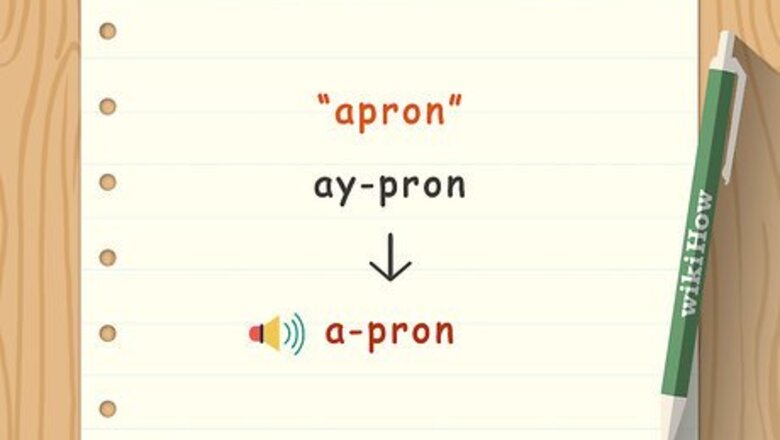
views
Learning the Basics
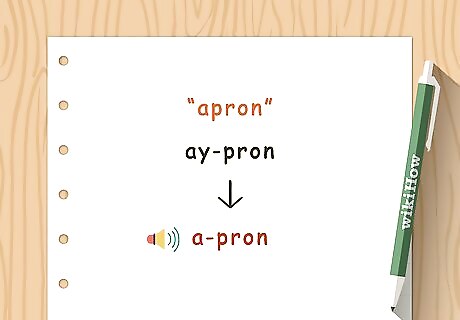
Pronounce the vowel "a" as a short "a." When you say words with the letter "a" in them, you should say the "a" like you would in the words "apple," "bat," and "gas." Don't use the long "a" sound, like in the words "ape" and "acorn." For example, if you wanted to say the word "apron," instead of saying it with a long "a" (ay-pron), you would use a short "a" (a-pron.)
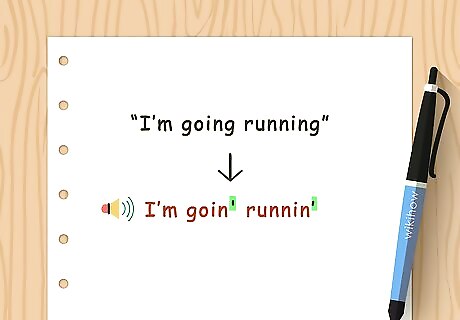
Shorten -ing endings to -in. People who speak with a Yorkshire accent don't pronounce the "g" at the end of -ing words. Whenever you use a word ending in -ing, drop the "g" and finish the word with "in." For example, instead of saying “I’m going running,” you would say “I’m goin' runnin’.” If you were looking for your keys, you would say "I'm lookin' for my keys."
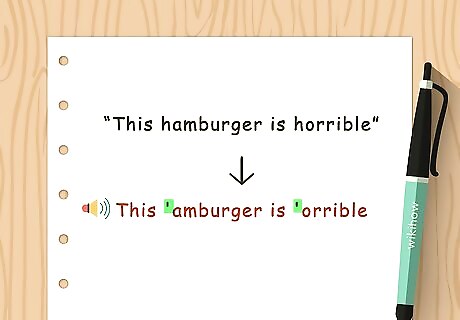
Drop the “h” at the beginning of words. Instead of making an "h" sound, just start off the word with the letter that comes after "h." For example, instead of saying "I need help with my homework," you would say "I need 'elp with my 'omework. "This hamburger is horrible" would be said "This 'amburger is 'orrible."
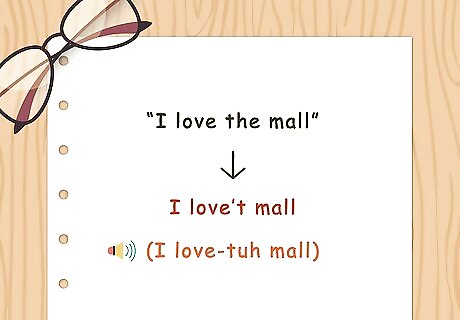
Drop the words “the” and “to” from your vocabulary. People in the county of Yorkshire replace these two words with a simple "t" sound, like the sound at the beginning of the words tiger and tomato. The "t" sound should be quick and barely perceptible. For example, instead of saying “I love the mall,” you would say “I love’t mall.” It should sound like "I love-tuh mall." If you were going fishing, you would say “I’m goin’ t’fish.” It would sound like "I'm goin' tuh-fish."
Using Common Words
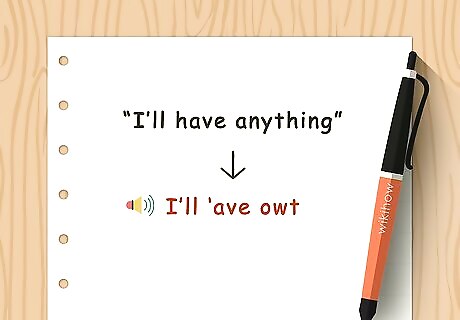
Say “owt” instead of “anything.” People in the County of Yorkshire always say "owt," not "anything." Pronounce "owt" exactly as the word out is pronounced. For example, if someone asks you what you want for dinner, you could say “I’ll ‘ave owt,” meaning you’ll have anything to eat. You would ask your friend if they want anything from the shops by saying "Do you need owt from't shop?"
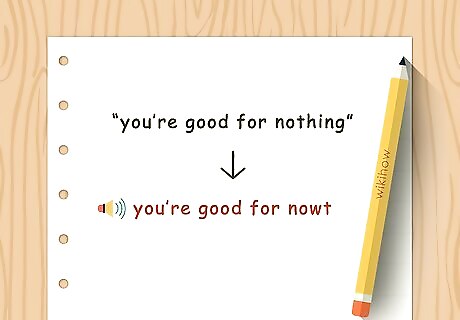
Say “nowt” instead of “nothing.” Just like with the word “owt,” you want to pronounce “nowt” like now with a t on the end. If somebody says “you’re good for nowt,” they're saying you're good for nothing. You could say "I 'ave nowt in my wallet," if you're all out of money.
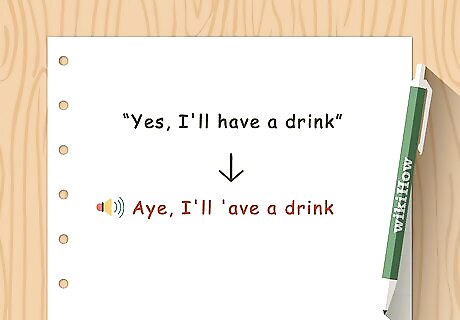
Say yes to something by saying “aye.” “Aye” is pronounced like the word “eye.” If someone asks you a question and your answer is yes, you would say "aye." For example, if someone asked if you wanted a slice of cake, you could say “aye” if you were interested. "Aye, I'll 'ave a drink," means "Yes, I'll have a drink."
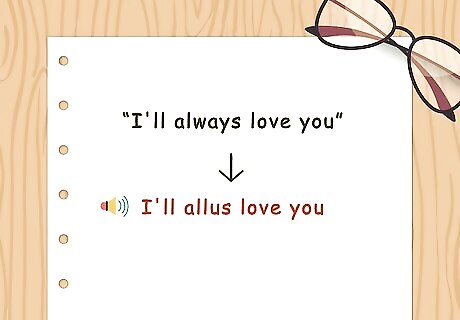
Use “allus” instead of “always.” People Yorkshire folk shorten "always" and blend the middle of the word together so it sounds like "allus." For example, if your boss said to you “you're allus late for work,” you'd probably want to start being on time more. "I'll always love you" would be "I'll allus love you."
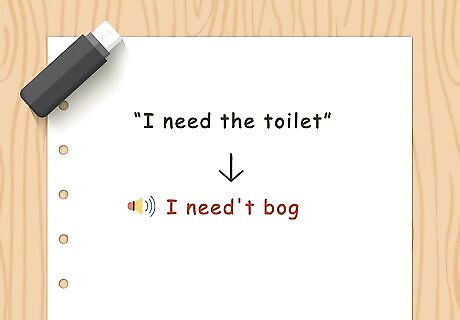
Tell people you need to use the “bog” when you need the bathroom. In Yorkshire County they say “bog” instead of "toilet". Pronounce "bog" like it rhymes with "hog" or "jog." For example, you would say “I need't bog” instead of “I need the toilet.” If you wanted to know where the bathroom is, you could ask "Wheres't bog?"
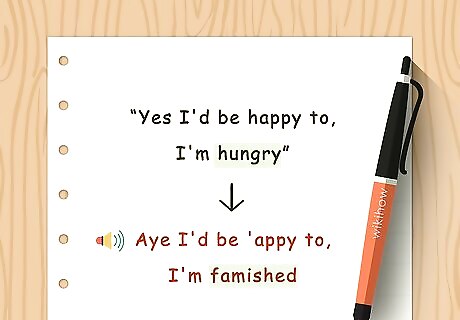
Say “famished” instead of hungry. In Yorkshire County people let each other know they want food by saying they're "famished." For example, if you wanted to go get lunch with your friends, you could say to them “Let's get food, I'm famished.” If someone asked you to get dinner with them, you could say "Aye I'd be 'appy to, I'm famished."
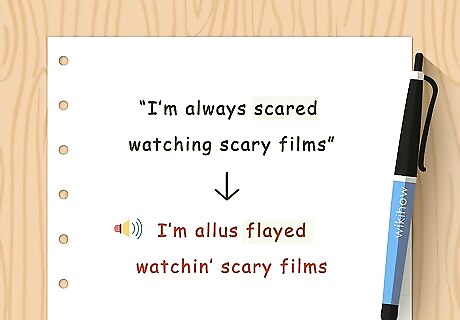
Tell people you’re “flayed” if you feel scared. People who speak with a Yorkshire accent often say they're "flayed" if they're really scared by something. The word "flayed" indicates that something frightened you a lot. For example, instead of saying "I'm always scared watching scary films," you would say “I’m allus flayed watchin’ scary films.”
Saying Popular Phrases
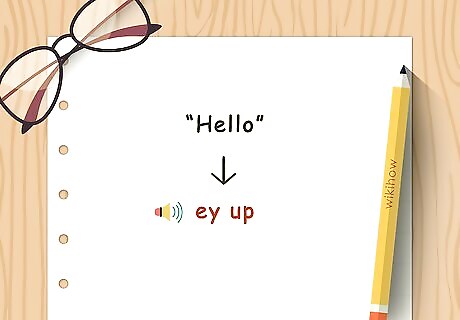
Say “ey up” when you’re greeting someone. “Ey up” is just a casual way of saying hello to someone. For example, if you ran into your friend on the street, you could say “ey up” to greet them.
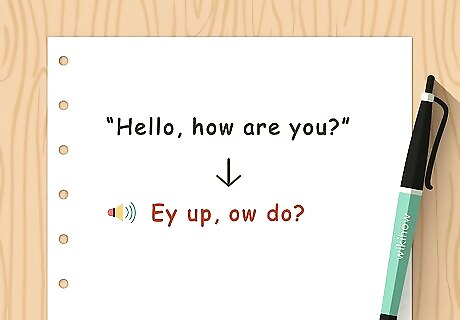
Ask people “ow do?” instead of “how are you?” You’re dropping the “h” sound from “how” and replacing “are you” with “do.” If you’re meeting your friend for lunch, instead of saying “Hey, how are you?” when they arrive, you’d say “Ey up, ow do?”
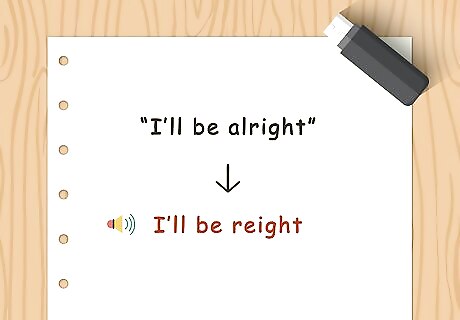
Say “be reight” to let someone know everything will be alright. Pronounce “reight” like you’re saying the word “rate.” If someone asks if you’re going to be OK, instead of saying “I’ll be alright,” you would say “I’ll be reight.”
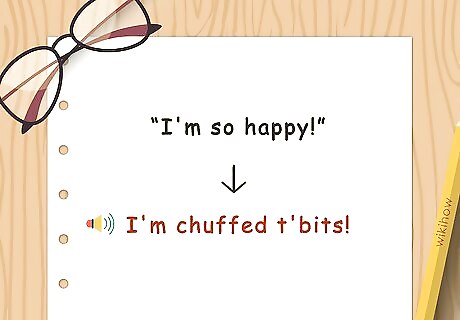
Say you're "chuffed t'bits" if you're feeling proud of yourself. "Chuffed" is a common Yorkshire word meaning "pleased" or "happy." For example, if you got accepted to your dream university, you might tell your friends saying "I'm chuffed t'bits!"
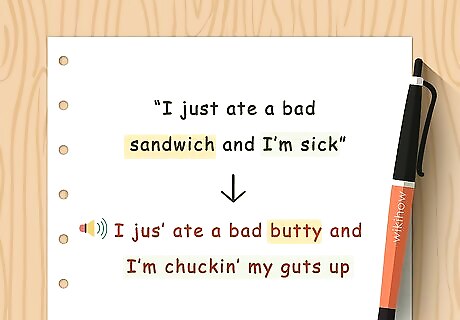
Tell someone you’re “chuckin’ your guts up” if you’re sick. If you call in sick to work, you might say to your boss “I’ll be reight, I jus’ ate a bad butty and I’m chuckin’ my guts up.” Your boss would understand that you’ll be alright, you just ate a bad sandwich and now you’re sick.
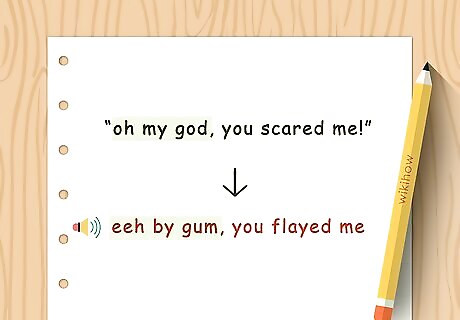
Say “eeh by gum” instead of “oh my god.” Use this phrase to express that you’re shocked by something. For example, you might say “eeh by gum, you flayed me” when your friend sneaks up behind you and scares you.
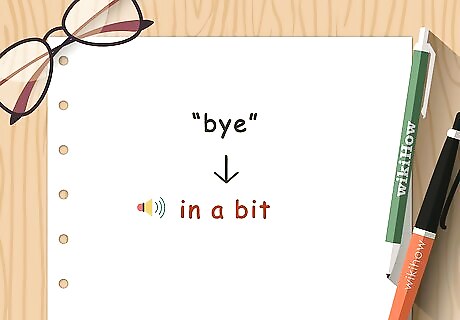
Tell people “in a bit” when you want to say goodbye. You’re telling them you’ll see them “in a bit.” This is a friendly goodbye.















Comments
0 comment